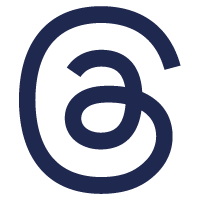Desinformação e fake news: avaliação das competências de alunos do ensino superior
DOI:
https://doi.org/10.5380/atoz.v13i0.89709Palabras clave:
Competência em informação, Competência digital, Desinformação, Fake News, Pandemia, COVID-19.Resumen
Introdução: A competência em informação é a habilidade de identificar a necessidade de informação, buscar, acessar, avaliar e usar a informação de forma eficaz, ética e legal. A competência digital consiste na capacidade de usar tecnologias digitais para coletar, analisar e avaliar informações, bem como construir novas informações e se comunicar com outras pessoas durante o processo. Consideramos que a universidade proporciona ao indivíduo o desenvolvimento destas competências, pois busca capacitar o indivíduo de forma ética e crítica quanto ao uso da informação. Desta forma, o presente estudo buscou identificar a percepção dos alunos dos primeiro e quarto anos de um curso de graduação em Biblioteconomia e Ciência da Informação quanto a conteúdos relacionados à pandemia da COVID-19 que foram compartilhados na web. Método: Os conteúdos foram apresentados a eles em formato de quiz para que os identificassem como verdadeiros ou falsos. Os conteúdos foram retirados de plataformas de checagem de notícias e apresentados aos alunos sem correção ortográfica ou gramatical. Resultados: Após a análise dos resultados, identificamos que 78,93% dos alunos do primeiro ano e 100% dos alunos do quarto ano marcaram corretamente pelo menos três dos cinco conteúdos apresentados. Assim, quando comparamos os alunos do primeiro ano com os do quarto ano, concluímos que os alunos do quarto ano possuem um maior discernimento quanto à avaliação correta da desinformação, como era esperado. Conclusão: Este sugere que seu maior tempo na universidade possivelmente tenha acarretado o desenvolvimento mais aprimorado das habilidades da competência em informação e digital.
Citas
American Library Association. (1989). Presidential Committee on Information Literacy: final report. Washington: ALA, 1989. Recuperado de: http://www.ala.org/acrl/publications/whitepapers/presidential.
Antunes, M. L.; Lopes, C. & Sanches, T. (2019). A literacia da informação no combate às fake News: desafios e estratégias formativas no ensino superior. IX Encontro Ibérico EDICIC.
Association of College and Research Libraries (2000). Information Literacy Competency Standards for Higher Education. Chicago: American Library Association. Recuperado de: https://alair.ala.org/bitstream/handle/11213/7668/ACRL%20Information%20Literacy%20Competency%20Standards%20for%20Higher%20Education.pdf?sequence=1&isAllowed=y.
Belluzzo, R. C. B. (2005). Competências na era digital: desafios tangíveis para bibliotecários e educadores. ETD - Educação Temática Digital, Campinas, 6(2):30-50, jun.
Belluzzo, R. C. B.; Santos, C. A. & Almeida Júnior, O. F. (2014). A competência em informação e sua avaliação sob a ótica da mediação da informação: reflexões e aproximações teóricas. Informação & Informação, Londrina, 19(2):60-77, maio/ago.
Brisola, A. & Bezerra, A. C. (2018). Desinformação e circulação de “fake news”: distinções, diagnóstico e reação. XIX Encontro Nacional de Pesquisa em Ciência da Informação. Recuperado de: https://brapci.inf.br/index.php/res/v/102819.
Campello, B. (2003). O movimento da competência informacional: uma perspectiva para o letramento informacional. Ciência da Informação, Brasília, 32(3):28-37, set./dez.
Campos, L. V. ([2020?] ).“O que são fake news?”. [S.l.]: Brasil Escola. [2020?]. Recuperado de: https://brasilescola.uol.com.br/curiosidades/o-que-sao-fakenews.htm.
Carretero, S.; Vuorikari, R. & Punie, Y. (2017). The Digital Competence Framework for Citizens: With eight proficiency levels and examples of use. Luxembourg: Joint Research Centre.
Castells, M. (2003). A galáxia da internet: reflexões sobre a internet, os negócios e a sociedade. Rio de Janeiro: Zahar.
Castells, M. (2006). A sociedade em rede. 9. ed. São Paulo: Paz e Terra.
CHAUÍ, M. (2010). Convite à filosofia. São Paulo: Ática.
Comissão Europeia. (2018). Combater a desinformação em linha: uma estratégia europeia. Bruxelas: Comissão Europeia. Recuperado de: https://eurlex.europa.eu/legal-content/PT/TXT/?uri=CELEX%3A52018DC0236.
Corrêa, E. C. D. & Custódio, M. G. (2018). A informação enfurecida e a missão do bibliotecário em tempos de pós-verdade: uma releitura com base em Ortega y Gasset. Revista Brasileira de Biblioteconomia e Documentação, São Paulo, Online First.
D’Ancona, M. (2018) Pós-verdade: a nova guerra contra os fatos em tempos de fake news. Barueri: Faro Editorial.
DIAS, F. B. C. (2021) Competência em informação na era da pós-verdade: a (in)formação na graduação em biblioteconomia e ciência da informação da UFSCar. Dissertação (Mestrado em Ciência da Informação) – Departamento de Ciência da Informação, Universidade Federal de São Carlos, São Carlos/SP.
Dudziak, E. A. (2001) Information literacy e o papel educativo das bibliotecas. Dissertação (Mestrado em Ciências da Comunicação) – Escola de Comunicação e Artes, Universidade de São Paulo, São Paulo.
Fallis, D. (2015). What is disinformation? Library Trends, 63(3):401-426. Recuperado de: https://muse.jhu.edu/article/579342#:~:text=According%20to%20the%20information%20scientist,misleading%E2%80%9D%20(%C2%A75).
Furnival, A. C. M. & Santos, T. (2019). Desinformação e as fake news: apontamentos sobre seu surgimento, detecção e formas de combate. Conexão – Comunicação e Cultura, Caxias do Sul, 18(36):94-113.
Gilster, P. (1997). Digital literacy. New York, NY: Wiley Computer Publishing.
International Federation of Library Association and Institutions. (2017). How to spot fake news. Recuperado de: https://www.ifla.org/publications/node/11174.
Julien, H. (2018). Digital literacy in theory and practice. In: Khosrow-Pour, M. (ed.) Encyclopedia of information science and technology. New York: IGI Global.
Lau, J. (2008). Diretrizes sobre desenvolvimento de habilidades em informação para a aprendizagem permanente. Veracruz, México: IFLA. Recuperado de: https://www.ifla.org/files/assets/information-literacy/publications/iflaguidelines-pt.pdf.
Lenox, M. F. & Walker, M. L. (1993). Information literacy in the educational process. The Educational Forum, 57(2):312–324.
Lewis, D. (2021). COVID-19 rarely spreads through surfaces. So why are we still deep cleaning? Nature, News Feature 29 January. Recuperado de: https://www.nature.com/articles/d41586-021-00251-4.
Mata, M. L. (2009). A competência informacional de graduandos de biblioteconomia da região sudeste: um enfoque nos processos de busca e uso ético da informação. Dissertação (Mestrado em Ciência da Informação) – Faculdade de Filosofia e Ciências, Universidade Estadual Paulista “Júlio de Mesquita Filho”, Marília–SP.
Organização das Nações Unidas para a Educação, Ciência e Cultura (UNESCO). (2002). About Media and Information Literacy. [s. l.]: UNESCO. Recuperado de: https://www.unesco.org/en/media-information-literacy/about.
Organização Mundial de Saúde. World Health Organization [Internet]. (2021). WHO publichealth research agenda for managing infodemics. Geneva: WHO. Recuperado de: https://www.who.int/publications/i/item/9789240019508.
Oxford Dictionaries. (2016). Oxford Dictionary 2016 word of the year. Recuperado de: https://en.oxforddictionaries.com/word-of-the-year/word-of-the-year2016.
Paula, L. T.; Silva, T. S. R. & Blanco, Y. (2018). A. Pós-verdade e fontes de informação: um estudo sobre fake news. Revista Conhecimento em Ação, Rio de Janeiro, 2(1), jan./jun.
Reuters Institute of Oxford. (2022) Digital News Report: Brazil. Universidade de Oxford. Recuperado de: https://reutersinstitute.politics.ox.ac.uk/digital-news-report/2022/brazil.
Santana, G. P.; Semeão, E. L. M. S. & Brandão, M. F. R. (2018). Os efeitos sociais da informação no contexto da pós-verdade: perspectivas de estudo das “fake news” na Ciência da Informação. VII Seminário Hispano-Brasileiro de Pesquisa em Informação, Documentação e Sociedade, Recuperado de: http://seminariohispanobrasileiro.org.es/ocs/index.php/viishb/viishbucm/paper/view/334.
Santos, R.; Azevedo, J. & Pedro, L. (2016). Literacia(s) digital(ais): definições, perspectivas e desafios. Media & Jornalismo, 15(27):17-44, set.
Schneider, M. (2022). A era da desinformação: pós-verdade, fake news e outras armadilhas. Rio de Janeiro, Garamond. Recuperado de: https://aterraeredonda.com.br/a-era-da-desinformacao/.
Secker, J. (2017). The trouble with terminology: rehabilitating and rethinking digital literacy. In: REEDY, K.; PARKER, J. (eds.). Digital Literacy Unpacked. London: Facet Publishing. pp. 3-16. Disponível em: https://openaccess.city.ac.uk/id/eprint/20546/.
Vasconcellos, F. (2020). Qual a diferença entre disinformation, misinformation e mal-information?. 2020. Recuperado de: https://fabiovasconcellos.com/2020/06/16/qual-a-diferenca-entre-desinformationmisinformation-e-mal-information/.
Webber, S. & Johnston, B. (2003). Information literacy in higher education: a review and case study. Studies in Higher Education, 28(3):335-352.
Wenzel, C. (2009). A nova economia e o “produsuário” no Second Life. XIV Congresso de Ciências da Comunicação na Região Sudeste. Recuperado de: http://www.intercom.org.br/papers/regionais/sudeste2009/resumos/r14-0898-1.pdf.
Descargas
Publicado
Cómo citar
Número
Sección
Licencia
La revista AtoZ es una revista científica de acceso abierto y los derechos de autor de artículos y entrevistas pertenecen a sus respectivos autores/encuestados. Los autores otorgan a la AtoZ el direito de incluir el material publicado (revisado por pares/pos-print) en em sistemas/herramientas de indización, agregadores o curadores.
Los autores tienen permiso y se les anima a depositar sus artículos en sus páginas personales, depósitos y/o portales institucionales anteriormente (pre-print) y posteriormente (post-print) a la publicación en esa Revista. Se pide, si possible, que se apunte la referencia bibliográfica del artículo (incluyendose la URL) en base a la AtoZ.
La AtoZ es sello verde por Diadorim/IBICT.
Todo el contenido de la revista (incluyendo las instrucciones, modelos y política editorial) a menos que se indique otra cosa, están bajo una Licencia de Atribución de Bienes Comunes Creativos (CC) 4.0 Internacional.
Cuando los artículos son publicados por esta revista, se pueden compartir (copiar y redistribuir el material en cualquier soporte o formato para cualquier propósito, incluso comercial) y adaptar (remezclar, transformar y crear a partir del material para cualquier propósito, incluso si es comercial). Debe dar el crédito correspondiente, proporcionar un enlace a la licencia e indicar si se realizaron cambios.
La AtoZ no cobra cualquier tasas por la sumisión y/o procesamiento y/o la publicación de artículos.


























